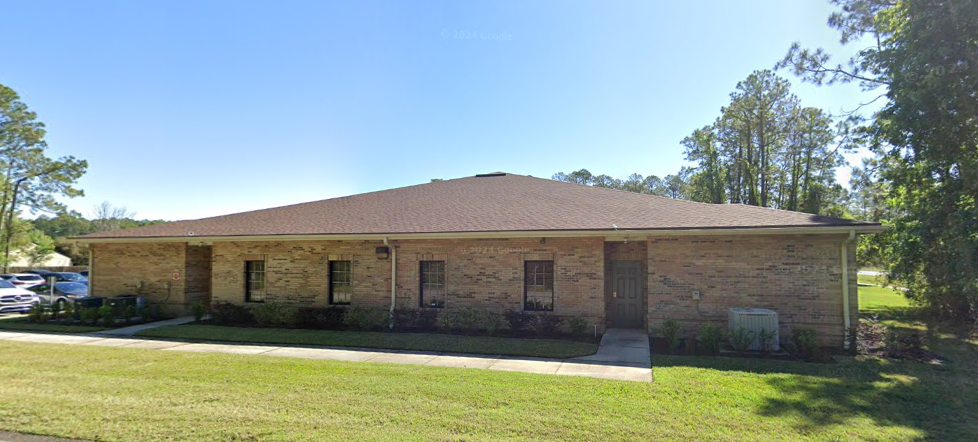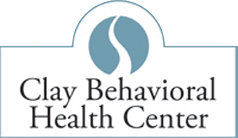Clay Behavioral Health Center
Overview
Clay Behavioral Health Center, situated in Middleburg, Florida, offers a comprehensive selection of substance addiction and mental health treatment services for both adults and children. The facility provides outpatient counseling, in-home mental health counseling, and specialized programs to individuals who are managing substance addiction, mental illness, and co-occurring disorders. Services provided include emergency services, family preservation, dual diagnosis treatment, rehabilitation, prevention services, treatment court programs, parenting programs, therapeutic vacation programs, and children's outpatient counseling. Additionally, outpatient counseling, life skills groups, and emergency services are available. The center is dedicated to delivering comprehensive care to all individuals, irrespective of their religious affiliation or gender.
The facility employs a diverse array of evidence-based treatment modalities, including cognitive behavioral therapy (CBT), psychosocial rehabilitation, assertive community treatment, group therapy, and individual counseling. The HELM Program, which offers support to individuals who are experiencing their first episode of psychosis, and programs for first responders are examples of specialized services. In addition, the center offers family education and support, as well as youth-specific programs that utilize evidence-based Curriculums. Clay Behavioral Health Center is subject to stringent care standards and is accredited by The Joint Commission. It provides services on a sliding-fee scale that is determined by financial need and accepts a diverse array of private insurance plans, including Tricare, Medicaid, Medicare, and self-pay options.
Clay Behavioral Health Center at a Glance
Payment Options
- County or local government funds
- Community Mental Health Block Grants
- Community Service Block Grants
- Medicaid
- Other State funds
Assessments
- Comprehensive mental health assessment
- Comprehensive substance use assessment
Age Groups
- Adults
- Young adults
Ancillary Services
- Case management service
Accreditations
SAMHSA certification for opioid treatment program (OTP):
SAMHSA's Opioid Treatment Programs (OTPs) accreditation is a rigorous recognition process that signifies an OTP's commitment to providing high-quality care for individuals dealing with opioid use disorders. It assures patients, families, and the community that the program adheres to evidence-based practices, employs qualified staff, and maintains a safe treatment environment. This accreditation is a symbol of quality and accountability, offering confidence in the program's ability to support individuals on their path to recovery from opioid addiction.
Treatment At Clay Behavioral Health Center

Conditions Treated
Mental health treatment:
Mental health facilities offer a safe space for individuals to get specialized care. Trained experts create personal plans using therapies, possibly including medication. The goal is to help individuals cope better and lead fulfilling lives, with constant support and a community feel.
Substance use treatment:
Substance use rehabilitation is a structured program aimed at assisting individuals in overcoming their dependencies on drugs or alcohol. Through a combination of medical detoxification, counseling, and various therapeutic approaches, these programs strive to address the physical and psychological aspects of addiction. The goal is to equip individuals with the knowledge, skills, and support necessary to attain lasting sobriety, while also working to identify and address the underlying issues contributing to substance misuse. By fostering a supportive environment, substance use rehabilitation centers provide a pathway towards a healthier, substance-free life.
Co-occurring Disorders:
Dual-diagnosis rehabilitation centers specialize in the treatment of individuals who suffer from a co-occurring mental health disorder and a substance use disorder. This complex interplay between addiction and mental health can make recovery more challenging, as each condition may exacerbate the symptoms of the other. Dual-diagnosis rehabilitation centers offer an integrated approach that addresses both issues simultaneously and often includes a comprehensive assessment for an Integrated Treatment Approach through Holistic Therapies, including family therapy and aftercare treatment.

Levels Of Care
Partial Hospitalization Program:
A Partial Hospitalization Program (PHP) is an intensive rehabilitation option, typically designed for individuals with acute symptoms that are challenging to handle but don't necessitate round-the-clock care. PHPs provide structured therapeutic activities, which can include individual and group sessions, and generally operate 3-5 days a week, from approximately 9 am to 3 pm. While some PHPs are residential, allowing patients to stay overnight, others are non-residential, enabling patients to return home each evening. The duration of a PHP can range from 1 to 6 months, and some programs also offer transportation and meals to participants.
Outpatient:
Outpatient treatment in a rehab center offers structured therapeutic services for individuals seeking recovery without full-time residential admission. Unlike intensive outpatient programs, which demand more frequent and longer sessions, standard outpatient care provides a more flexible approach, allowing participants to maintain daily activities and responsibilities while undergoing treatment.
Hospital inpatient treatment:
Inpatient treatment involves an intensive, residential therapeutic program designed to treat serious addictions or other medical conditions. With a typical stay ranging from 30 to 90 days, individuals receive a structured regimen of various therapies including individual and group counseling, behavioral therapies, and family counseling. Under professional supervision, patients immerse themselves in a supportive environment, conducive to addressing underlying issues and promoting long-term recovery.

Treatment Modalities
Individual psychotherapy:
In individual therapy, a person engages in a one-on-one session with a qualified therapist or counselor. This therapeutic approach is crucial in successful substance abuse treatment because it delves into the underlying causes of addiction, addressing issues the individual may encounter in their familial, social, and professional or academic environments.
Cognitive Behavioral Therapy:
Cognitive Behavioral Therapy (CBT) is a widely practiced form of psychotherapy that seeks to address dysfunctional emotions, behaviors, and thoughts through a goal-oriented, systematic process. It encourages individuals to challenge distorted cognitions and change destructive patterns of behavior by promoting self-awareness and effective coping strategies. CBT is often used to treat a range of disorders including anxiety, depression, and stress, making it a versatile and practical therapeutic approach. Through enhancing an individual's capacity to manage life's challenges, CBT contributes to improved mental well-being and overall quality of life.
Dialectical Behavior Therapy:
Dialectical Behavior Therapy (DBT) is a cognitive-behavioral therapeutic approach primarily to treat individuals with borderline personality disorder. It combines standard cognitive-behavioral techniques with distress tolerance, acceptance, and mindfulness concepts. DBT emphasizes the balance between accepting and changing behaviors, aiming to help patients build life skills, regulate emotions, and improve interpersonal relationships. It has since been adapted for and shown effectiveness in treating a variety of other mental health conditions.
Group counseling:
Group Therapy is a therapeutic space where individuals battling addiction come together to share experiences, gain insights, and support one another on their journey to recovery. Facilitated by trained professionals, this setting fosters communal healing and empowers participants to overcome the challenges of addiction through collective strength and understanding.
Trauma-related counseling:
Trauma therapy addresses the deep-seated emotional and psychological wounds often linked with substance abuse disorders. Recognizing that traumatic experiences can be a root cause or a significant contributing factor to substance addiction, this therapeutic approach seeks to help individuals understand, process, and heal from their traumas. Doing so fosters emotional healing and bolsters the individual's chances of long-term recovery from addiction. Integrating trauma-informed care into addiction treatment ensures a comprehensive approach that addresses substance abuse's symptoms and underlying causes.
Ancillary Services
Languages
- Sign language services for the deaf and hard of hearing
- English
Special Programs
- Clients who have experienced trauma
Contact Information
DISCLAIMER: The facility name, logo and brand are the property and registered trademarks of Clay Behavioral Health Center, and are being used for identification and informational purposes only. Use of these names, logos and brands shall not imply endorsement. BetterAddictionCare.com is not affiliated with or sponsored by Clay Behavioral Health Center.



